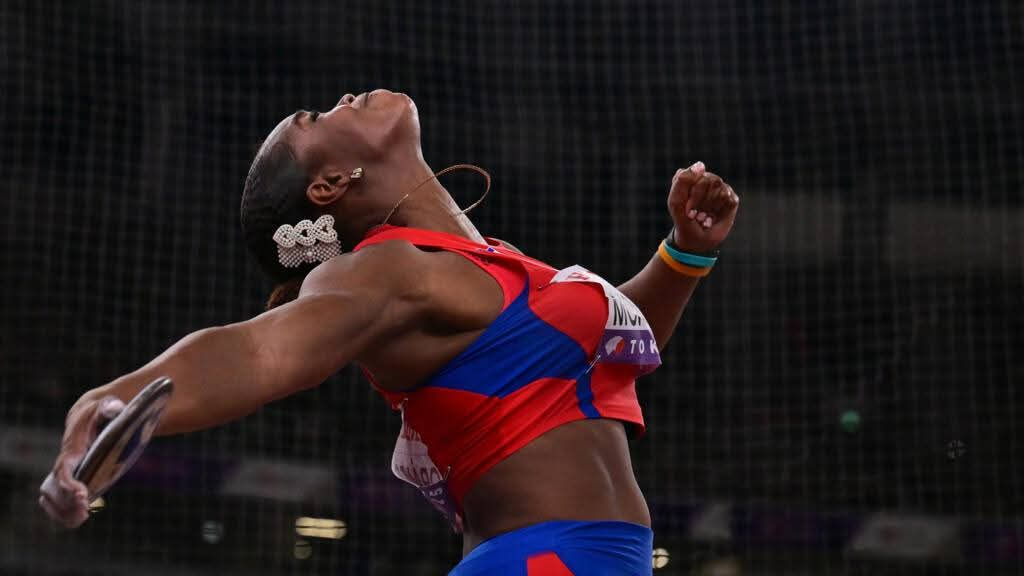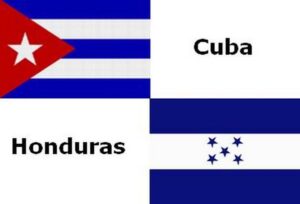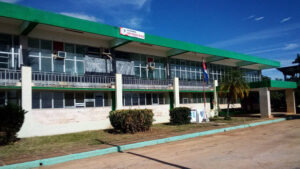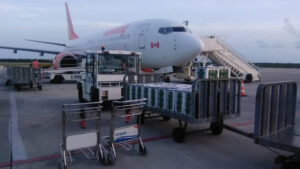The Cuban delegation at the still ongoing 2025 Tokyo World Athletics Championships has written a memorable page for the island’s sport, combining medals, national records, and pioneering performances that reflect both its athletic tradition and its promising future.
This has been a performance that demonstrates the work of Cuban athletics in a complicated international context.
Triple jumper Leyanis Pérez (23 years old) has established herself as the new world dominator of the speciality by conquering the gold medal with a jump of 14.94 metres, the best world mark of the 2025 season.
Leyanis dethroned the Venezuelan Yulimar Rojas (world record holder and Olympic champion), who was returning after a two-year absence due to injury, and obtained the bronze (14.76 m). The silver went to the Dominican Thea LaFond (14.89 m), Olympic champion in Paris 2024.
This gold confirms her unstoppable rise, as she was already the world indoor champion in Nanjing 2025 (14.93 m) and had achieved bronze in Budapest 2023.
Cuba managed to place two athletes in the women’s triple jump final; Liadagmis Povea finished fourth with 14.72 m, confirming Cuban strength in this event.
Lázaro Martinez in the men’s triple jump, a speciality filled with much history for our country, hung the bronze medal on his chest with a jump of 17.49 in an event dominated by another Cuban, Pedro Pablo Pichardo, who stretched to 17 metres 97 cm on his final jump.
For her part, discus thrower Silinda Morales (25 years old) won the bronze medal in the discus throw with the best throw of 67.25 metres, which was also a new personal record.
Silinda overcame high-level rivals and continued the impressive Cuban tradition in this event.
Cuba thus totals 8 medals in the women’s discus at world championships, with legends like Yarelys Barrios, Denia Caballero, and Yaimé Pérez.
Only the American Valarie Allman (69.49 m) and the Dutch Jorinde Van Klinken (67.50 m) surpassed Morales.
Beyond the medals, several Cuban athletes achieved feats that expand the historical limits of the island’s athletics.
Roxana Gómez broke the national 400 metres flat record, which had remained unbeaten since 1991, held by Ana Fidelia Quirot (49.61).
Gómez ran 49.48 seconds to finish sixth in a historic race where Sydney McLaughlin (USA) went under 48 seconds and stamped a new championship record for the World Championships and the United States, the second-best time of all time.
Anisleidis Ochoa made history by being the first Cuban woman to compete in a long-distance event (5000m) at a World Championship. Not only that, but she also beat her own national record (15:31.35), improving the mark she had set in June in Havana.
Daily Cooper advanced to the 800 metres semi-finals, setting a new personal best (1:58.16) and demonstrating intelligent race tactics.
These results gain greater relevance considering the current context of Cuban sport:
A beacon in difficult times, The success occurs in a period marked by the emigration of talent and economic difficulties in Cuba, demonstrating that there are still athletes who choose to represent the island and succeed at the world elite level.
Cuba reaffirmed its enormous tradition in technical events
Leyanis Pérez’s gold is Cuba’s third gold medal in the triple jump at the outdoor world championships, while Silinda Morales’s bronze is the eighth Cuban medal in the women’s discus.
Performances like those of Ochoa (long-distance) and Cooper (800m) show a diversification in the disciplines where Cuba can be competitive globally, beyond its traditional specialities.
Cuba’s balance in Tokyo 2025 is outstanding: 3 medals (gold and two bronze), multiple national records broken, and several finals.
These results not only place Cuba in eighth place in the all-time World Athletics Championships medal table, but they also send a powerful message.
Cuban athletics, despite beliefs and a lack of focus, with its established legends and its new stars, has demonstrated that it remains a vital force on the world stage.




